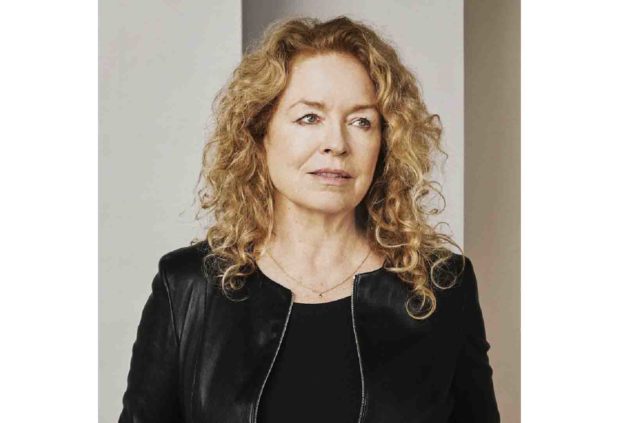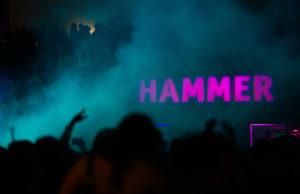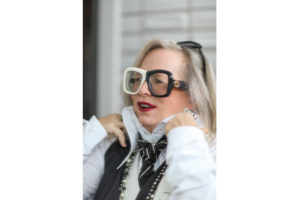Dedicated to uncovering the unfiltered humanness behind her characters, professor Patricia Rozema delves into the rerelease of her films at the Hammer Museum.
Having received a number of accolades, Rozema’s films “White Room” and “Beckett on Film: Happy Days” were recently shown at the Hammer Museum in Westwood under the UCLA Film & Television Archive. A former journalist, Rozema looks for the greater truth in understanding people through fiction with a unique lens as a queer, female filmmaker. Currently an adjunct professor at the UCLA School of Theatre, Film and Television, professor Rozema began teaching a course this past September where she aids her 10 students in creating their own films.
Rozema spoke with the Daily Bruin’s Izzy De Leon about her process as an artist, how her time at UCLA has influenced her career and what the presentation of her films at Hammer Museum means to her.
This interview has been edited for length and clarity.
[Related: Q&A: Alumnus Hana Kim talks Tony-nominated projection design on ‘The Outsiders’]
Daily Bruin: How has your time at UCLA influenced your outlook on the industry? What role has it played in your career?
Patricia Rozema: I have a spectacular group of 10 students. I almost hesitate to use the word students because they’re very sophisticated in their understanding of the world, human nature and this art form we’re dealing with. It’s more like walking alongside them as they make their films. I have learned a lot from them because they’re all extremely individual. I am trying to create as noncompetitive of an environment as possible so that we’re all helping each other raise our games. We’re a team of artists making something together and helping each person find their own very specific cinematic voice.
DB: What films are on display in the Hammer Museum, and why you chose to display them?
PR: The programmer, Amanda Salazar, picked the films for the UCLA part of the program. She chose a film called “White Room” which was my second feature, that had a controversial reception at the beginning. With this second release, it’s gotten a lot more excitement around it, especially with young people. The film critiques celebrity culture and has a character who is kind of me in a way. He (Norman, the main character) is very interested in seeing other people in their private moments. The story is a journey through genres: it starts as a fairy tale, becomes a thriller, then a romance, and a fairy tale again. I don’t think you can sit at any point in the film and say it’s something you’ve seen before or that you know what’s going to happen next.
DB: How has your creative process changed over time in producing and coming up with ideas for films?
PR: My process has always been quite intuitive. Sometimes I just write, like in “Grey Gardens” (one of Rozema’s most famous films), and sometimes I just direct. When I write, I sometimes try to draw the characters out of different sides of myself that are in conflict. I try to create people from the embattled voices inside my mind and my heart. And that makes me take those characters seriously. I know the characters and I won’t just make them into good guys or bad guys because they’re me. When I’m talking to the students, I tell them to look into something that touches them and also has a societal impact. The best ideas come from multiple levels: personal, social, political, philosophical or eternal. If your work resonates on all those different levels, then you might have something potent.
[Related: Alumni evoke thought, emotion at Los Angeles International Children’s Film Festival]
DB: How do you hope your notable success in the film industry as a woman will influence young, female film students?
PR: I hope that just the example of me, even if our work is very different, as someone who’s been able to make a living (as a filmmaker) is reassuring. I hope I’m giving them a very practical but idealistic vision – you can maintain commercial viability if you are honest and authentic in your work.
DB: Are there any consistent, underlying themes across your films?
PR: I’m attracted to doubleness and split personalities. I have found them interesting from the beginning. I think our private and public selves are so divided, and how do you integrate them? How do you have integrity as a person with your private and public self, especially as an artist? I have a very broad definition of what an artist is, as there’s creativity everywhere. Something that the new re-releasing of these films has brought to my attention is that my characters are sometimes a little out of step with their society, but they’re not uncomfortable as people. The characters are fairly content in themselves, but it’s society that doesn’t accept them completely.
DB: Has being a female filmmaker been a motivating factor in your work?
PR: You have no constant against which to judge your career. When I started, there were very few female directors. And mostly, the people with money and power were cis, white men looking for examples of themselves to give the money and power to. I knew I was an anomaly, but I knew as long as my work had some humor and depth in it, it was never boring. I knew that, as a queer woman, the world was opening up and that would be less of an issue.




Comments are closed.